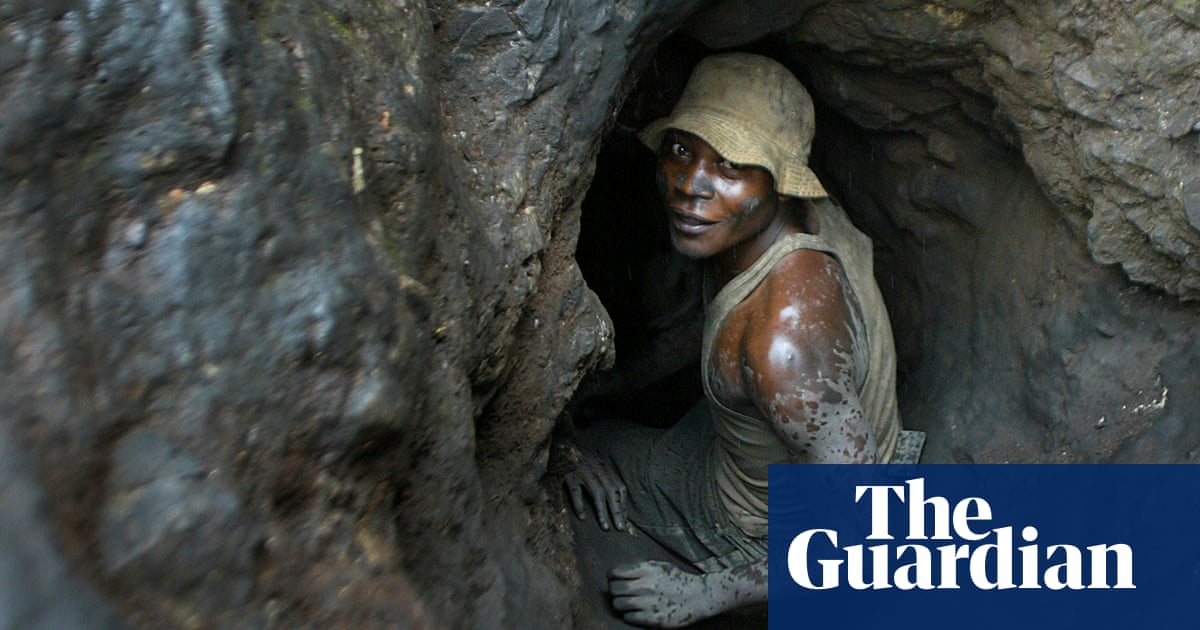
In an effort to prevent the negative impacts and exploitation associated with extracting fossil fuels, leaders in Africa are advocating for stricter regulations on the acquisition of minerals and metals necessary for a shift towards clean energy.
At the UN environmental assembly, a proposal was put forth by a coalition of primarily African nations – Senegal, Burkina Faso, Cameroon, and Chad – for structural alterations aimed at promoting fair distribution of benefits from extraction. This resolution advocates for the responsible and sustainable usage of transitional mineral resources.
The resolution is seen as a critical step for African nations, the environment, and the wellbeing of our people,” declared Jean Marie Bope, a representative from the Democratic Republic of the Congo, who showed support for the resolution.
The need for transitional minerals and metals, which are vital components in constructing renewable energy sources like solar panels, wind turbines, and electric cars, has significantly increased in the past ten years as the global community shifts away from fossil fuels. The United Nations Environment Programme reports that in order to achieve its climate targets, the world will require billions of tonnes of transitional minerals within the next thirty years.
Africa holds substantial reserves of the critical minerals. More than a half of the world’s cobalt and manganese, and 92% of its platinum, are found on the continent. DRC produces two-thirds of the world’s cobalt, a mineral used to build electric-vehicle batteries. But despite its vast mineral wealth, it remains one of the world’s poorest countries. Child labour and rights abuses also remain widespread in the country’s mining sector.
Leaders state that mineral-rich African countries have an untapped opportunity due to the demand for these resources. The limited processing capability of many countries in the region results in the exportation of raw materials and their refinement in China, which has a prominent role in global mineral processing and production.
Many countries in Africa, which produce minerals, are pushing for economic growth and job opportunities through the market for green minerals. As a result, some countries have implemented limitations on exporting raw minerals in order to boost domestic processing. During the assembly, leaders emphasized the need for agreements that facilitate technology transfers, increase processing capabilities, and improve workforce skills in order to ensure a fair transition.
Bope, involved in creating the resolution, stated that exporting raw materials has not been beneficial for the continent. They believe that Africa’s minerals can fuel the transition to clean energy, but they do not want to continue with past practices.
Campaigners for the environment also reiterated the need for sharing of benefits. Despite their overall support for the worldwide move towards clean energy technologies, they cautioned against the possibility of perpetuating current disparities in the African fossil fuel industry during this transition. The African Union has reported that the region exports approximately 75% of its crude oil, which is then refined in other countries and imported back as petroleum products. Additionally, the region exports 45% of its natural gas, which only accounts for a small portion of the region’s energy demands, while 600 million Africans still lack access to electricity.
“We must ensure that industrialization occurs here, rather than simply following another continent’s industrialization plan,” stated Seble Samuel, who is in charge of Africa campaigns and advocacy for the non-proliferation treaty initiative focused on fossil fuels. “We cannot risk perpetuating the same injustices and extractive practices that have occurred within the fossil fuel economy.”
Inger Andersen, UNEP’s executive director, called on governments and businesses to use responsibly sourced minerals in their clean energy transition, and on mineral-rich countries to enter into contractual arrangements that safeguard against “colonial models” of resource and labour exploitation.
Bypass the advertisement for the newsletter.
after newsletter promotion
Activists also expressed worries about the impact of mining on the environment and human rights. They argued that poorly managed mining operations could result in resource depletion, harm to biodiversity, and pose a threat to the rights of indigenous populations.
The resolution urged the UN to further explore worldwide scientific understanding of emerging techniques like deep sea mining, which involves extracting essential minerals from the ocean’s floor. Environmentalists have expressed concerns about potential harm to marine life.
Cannot reword. The original text appears to be a quote and cannot be changed without altering its meaning.
Source: theguardian.com


















